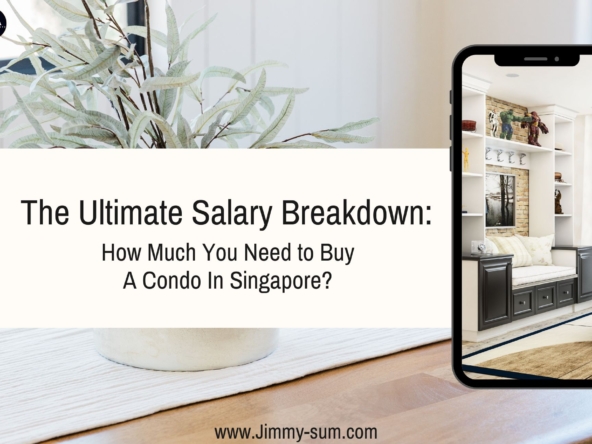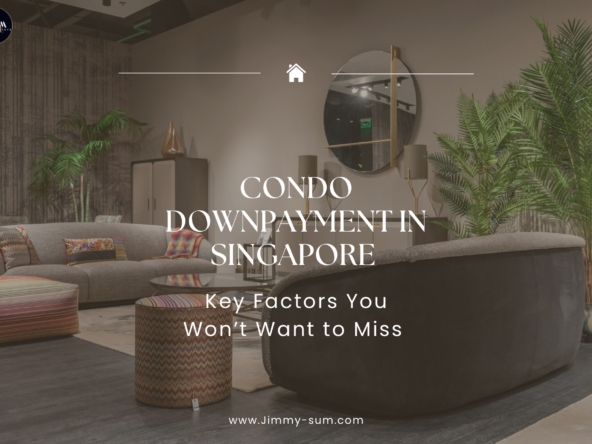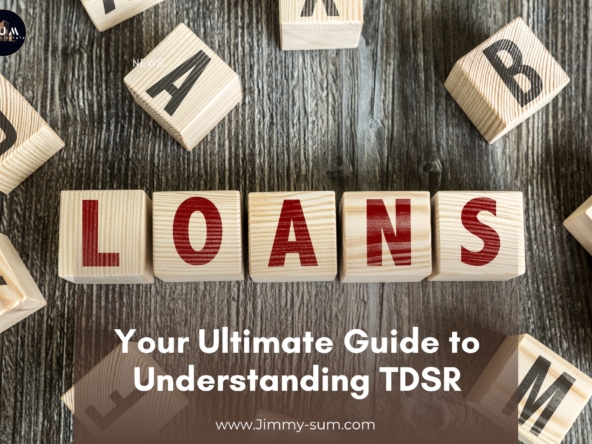When you purchase a property in Singapore, you are required to pay BSD (Buyer Stamp Duty). Along with this, you have to pay another stamp duty known as ABSD (Additional Buyer’s Stamp Duty) depending on the criteria, including the number of properties you own, and your residency status.
In December 2021, the government has revised the ABSD rates. In addition, on May 9, 2022, the Ministry of Finance has declared that the transfer of residential property into a living trust would be subjected to an ABSD of 35%.
To keep you aware, this guide covers everything about ABSD, including what ABSD is, ASBD rates, ASBD refund, remission, and more.
Let’s dive in:
What is ASBD?
ASBD is a tax imposed on the residential property in addition to the BSD (Buyer Stamp Duty). It is calculated depending on the selling price or the valuation of the property, whichever is higher. You are responsible for paying ABSD on residential property purchases if:
- You are a PR.
- You are a citizen of Singapore already having a residential property and wish to purchase a second, third, or fourth property.
- You are a Foreigner.
Basically, it is an addition to the BSD charged on all property investments in Singapore. It affects the foreigners, Singapore’s Permanent residents who want to purchase more than one property. In other words, this duty tax applies to everyone except for the citizens of Singapore purchasing their first residential property. The Singapore government has increased the ASBD for Singaporean citizens, foreigners, and permanent residents purchasing properties in Singapore once again on 27 April 2023.
Buyer’s Stamp Duty (Updated on 15 Feb 2023) |
|
| Property Price less than S$1M | (3% x purchase price) – $5,400 |
| Property Price S$1M and less than S$1.5M | (4% x purchase price) – $15,400 |
| Property Price S$1.5M and less than S$3M | (5% x purchase price) – $30,400 |
| Property Price S$3M and above | (6% x purchase price) – $60,400 |
How much amount do you have to pay for ASBD?
Here’s how much you need to pay for the ABSD:
Type of Buyers |
ABSD Rate on or after 27 April 2023 | |
| Singapore Citizen | Buying first residential property | 0% |
| Buying second residential property | 20% | |
| Buying third and subsequent residential property | 30% | |
| Permanent Resident | Buying first residential property | 5% |
| Buying second residential property | 30% | |
| Buying third and subsequent residential property | 35% | |
| Foreigner | Buying first residential property | 60% |
As you can notice, the ABSD prices make the BSD ones look like peanuts. For most of us, our HDB are considered the first property. However, these days, the younger generation has thoughts whether they should buy HDB as their first property. If you are thinking of home upgrading, here are the five key factors to consider before selling your HDB first. Once your first property is sold, no ABSD is payable on your next property purchase.
ABSD for all the property investment transferred into a living trust (Latest update on 27April2023)
The latest round of cooling measure on ABSD (Additional Buyer’s Stamp Duty) for property buying under trust comes unexpectedly on 27 April 2023. The government declared that if the residential properties are transferred into a living trust, ABSD of 65% will be payable, an additional of 30% from the previous 35%, even without stating the beneficial owner.
What does it mean?
Let’s understand this in simple terms.
A living trust is a type of a will where you legally assign your residential assets and properties to your family or loved ones. Once you transfer your hone into a living trust like a will, your trust holds your property. Back then, you did not have to pay ABSD for your property if the home did not have any beneficiary mentioned in the living trust.
With effect from 27April 2023,, the government has increased the ABSD from 35% to 65% for all the properties changed into a living trust even without the declaration of a beneficiary. So, if you are creating a will as you own an HDB or condo and consider splitting between your children and spouse, you might think about the 65% ABSD.
How to calculate ABSD Singapore?
ABSD is calculated depending on the property’s market value or purchase price percentage, whichever is higher. However, the price you are required to pay is based on your residency status along with the number of residential properties you have. If you are a foreigner or PR, you will have ABSD exposure.
The ABSD prices have revised consistently over the years since its introduction in 2011. The government can modify the rates anytime based on the property market condition.
ABSD Calculator
Before purchasing a property, you can use the ABSD calculator from the IRAS website to calculate the amount you must pay.
How to avoid ABSD?
There are several ABSD loopholes that help you in avoiding ABSD in Singapore. A few of them are listed below:
- Buy an Executive Condominium (if you want to upgrade)
One strange thing about ABSD is that if you want to purchase a new property but don’t want to own two properties, you still have to pay ABSD (hefty 20% tax or 30% for PR). Regardless you can apply for the remission if you sell your first property within six months of purchasing the new one if you meet the eligibility condition by IRAS. But the good news is that when you upgrade to a new EC (Executive Condominium) from HDB as part of your journey to asset progression through property investment, there is no need to pay ABSD. But still, you are required to sell your HDB within six months once you get your keys, but at least you won’t have to pay a huge amount of money.
- When you and your spouse sell your first property after purchasing a second property
If you are looking to buy another property under both name with the intention of selling your first property (purchased under both names too), you may apply for ABSD remission. In order for you to be eligible for ABSD remission, here are the conditions that need to be met:
- A Singapore Citizen must be included in the purchase of the first and the next property.
- The married couple does not own any interest in more than one residential property each at the point where the second residential property is purchased.
- The first residential property needs to be disposed within 6 months after the date of purchase of the second property or receiving the issue date of the TOP or CSC, whichever is earlier.
The application for ABSD remission has to be made within 6 months after the date of sale of your first residential property.
- Decoupling an owner from a current property
When one co-owner transfers their ownership share to the other co-owner(s). By doing so, the owner who has decoupled from the first property and moves on to buy another property, it will be considered his/her first property. No ABSD is incurred. However, this applies to Singapore Citizen only as ABSD is still payable for PR and foreigner regardless if this is your first property.
- If you are a foreigner from these FTAs countries, you are in for a sweet treat!
If you are a national or a permanent resident from these five countries, you receive the same kind of ABSD rate as local Singaporeans:
- Iceland
- Norway
- United States of America
- Switzerland
- Liechtenstein
As these countries are under the respective Free Trade Agreements, they are eligible for ABSD remission. With the guide to buying property in Singapore as a foreigner, it will make the whole process so much easier. If you are not convinced to invest your money, perhaps these 7 reasons why Singapore is your ideal place for real estate investment will help to change your mind.
As a foreigner, you are used to staying bigger homes back in your country like a landed. Understanding whether you are allowed to buy and own landed property in Singapore will definitely help you alot in your decision making if you decide to invest or even stay in this country.
Property Cooling Measures in Singapore – What are they for? (Latest update on 27 April 2023)
When the ABSD was presented in December 2011, it was mainly to discourage entities and foreigners from buying residential properties in Singapore and prevent the purchase of more than one residential property. A foreigner who wishes to purchase a property worth $2 million would now have to pay around $1.2M in ABSD.
| ABSD rates | First property | Second property | Third Property |
| ABSD for Singaporean citizens | 0% | 20% | 30% |
| ABSD for PRs | 5% | 30% | 35% |
| ABSD for foreigners | 60% | 60% | 60% |
One of the most common advantages of introducing ABSD was noticing a massive decline in property speculation. The overseas buyers who might be interested in the property investment in Singapore before have changed their minds due to high ABSD. The thought of paying $1.2M for a $2 million property was sufficient to make even the wealthiest investors think twice.
However, the ABSD increased further in January 2013, July 2018, December 16, 2021 and the latest one on 27 April 2023. Paired with the overall Debt servicing ratio and seller’s stamp duty, these measures were made to minimize the volume of property transactions. While these measures have cooled the property market for some years around 2018 to 2020, the pandemic brought another heatwave to the property market.
The average Singaporeans, who are already struggling with the monthly payments and home loan down payments, will be forced out of property ownership as the prices get high beyond their incomes.
Some Common FAQs from My Clients
What is ABSD Remission?
ABSD Remission is when there is no need to pay ABSD. Generally, PR and foreigners have to pay ABSD. However, if you have a Singaporean spouse and you are buying your first property as a married couple and under both names, you are eligible for ABSD remission. In addition, if you are shifting to another property as a married couple, you can obtain a refund on your ABSD. To get eligible for the rebate, you need to sell the property within six months of buying the second property.
How to Pay ABSD
The payment of ABSD is normally handled by your conveyancing lawyer who handles the whole process of your property purchase. Post-dated cheque can be issued to them. Take note that ABSD is required to be fully paid as they can’t be paid in instalments. Using CPF to pay for ABSD is possible. However, you need to pay this amount first after which your lawyer will write in to CPF for reimbursement.
Can ABSD be refunded?
If you are wondering, “Is ABSD refundable“? Then, yes, the married couples who paid ABSD while purchasing their second property may get eligible for the full ABSD refund in Singapore if they fulfill all the necessary conditions. You can review the full terms and conditions on the official website of IRAS.
Outcomes of Late Payment
If ABSD or BSD is not paid till the due date, you will be given a Demand note to make you remind of the payment. The Demand note also covers the penalty you have to pay for missing the deadline of the payment.
Here are the penalties:
- Payment Delay for around three months: $10 or an amount equal to the ABSD or BSD payable, whichever is higher.
- Payment Delay exceeding Three months: $25 or an amount equal to four times the ABSD or BSD payable, whichever is higher.
IRAS may regain the outstanding stamp duty by appointing your tenant, employer, or bank to pay the amount on your behalf. Furthermore, IRAS may also take legal actions to retrieve the outstanding amount.
When is ABSD payable?
The timeline of the ABSD is fourteen days after the sale and purchase agreement is signed. If the contract was signed overseas, the deadline is 30 days after receiving the agreement in Singapore.
Is Stamp duty necessary for all Residential Properties in Singapore?
Yes, it is necessary. The stamp duty is a government tax levied on all the residential property investments in Singapore. The amount of paying stamp duty is based on the property type and the purchase price, whether it is a company buying or an individual. Hence, all the future buyers must prepare enough to pay for their BSD and ABSD where applicable.
Do you need to pay Stamp duty together in a Joint Property Purchase?
Well, the answer to this question is Yes. If you purchase any property with your spouse, you both are required to sign the contract and be listed as purchasers. You both will pay the stamp duty together with the government choosing the higher ABSD or BSD for your property. For instance, you own two residential properties, and your spouse owns one. You incur ABSD of 30% as third property, whereas for your spouse, it will be deemed as second property with a ABSD of 20%. The government will choose the higher ABSD of 30% as joint stamp duties.
Few Last Words
You are aware of everything linked with ABSD, the amount to be paid, and the other essential information. So before buying a property in Singapore, consider all the exemptions and conditions. While the BSD is unavoidable, you might not have to pay for ABSD if you fulfil specific criteria.
Sometimes, holding off selling your property for a while can be your best option especially with the new cooling measures introduced on 30 September 2022.
Nonetheless, this guide will help you to get close to your financial goal. You can let us know if you are still unsure about anything related to ABSD. We will be happy to assist you.
Jimmy Sum is a professional real estate agent in the Singapore property market with more than 10 years of experience. If you need any professional advice on your asset progression journey or need some assistance in selling, buying or renting your property, you can feel free to send him an Whatsapp at +65 90918188.




